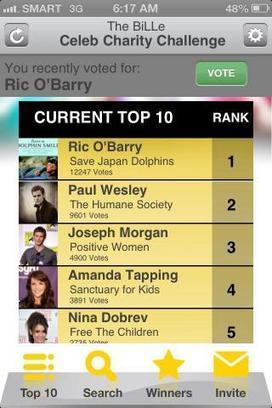See on Scoop.it – Makamundo (Earthly)
Philippine Online Chronicles is a weekly online publication which features a new kind of news. POC presents a multiplicity of perspectives in a single article.
(Previous: Responsible tourism: The right way to travel)
Being a responsible traveller starts with planning ahead and having the right choices regarding where and how to go based on your objectives.
Here are some easy tips to for responsible travel:
BEFORE TRAVELING: GET PACKED!
G – Go to destinations that are not only spectacular, but also educational and promoting respect to nature and cultural heritage as well.
E – Educate yourself with basic information about the place. Try to look into the site’s history, culture, advisory notices and more information as much as you can. It’s also good to learn a few simple words in the local dialect like “hello,” and “thank you.” Local people could appreciate your efforts to integrate with them.
T – Travel Guides. Travel guides could save your life! It could come handy to avoid getting lost. It contains basic geographical knowledge such as maps, transportation means, popular destinations, etc. You don’t need to buy from a bookstore. You can just Google.
P – Pack Light. It is good to pack everything you think you might need, but please don’t burden yourself with a lot of stuff. Plan what you need to bring depending on your activities and how long you would stay there. Figure out what you are going to wear every day… and please, try to be simple to avoid heavy bag problems.
You may need a medical kit, toiletries, light towel, sun block, extra bag for dirty & wet clothes, drinking tumbler, etc. Don’t forget to bring your I.D., ATM or credit cards, and, of course, enough money! Have a checklist to avoid forgetting things.
If you’re a frequent traveler, there’s a thing called the “art of packing” that might be helpful. It saves bag spaces, avoids ugly bag bulges, and organizes your things so you could easily find them. An ideal bag should have compartments and several pockets. But in case you don’t have that kind of bag, you may use smaller bags or packing cubes bags that suck out the air to compress clothing. You may also improvise by using large Ziplocs or re-used plastic shopping bags to separate your clothes from your other stuffs. Toiletries should be in a separate pouch as well as your medical kit. Put containers with liquids inside a Ziploc plastic bag especially when travelling by plane.
Secure fragile and valuable items like camera, cellular phones and wallets in a pouch or hand-carry bag that you should always bring with you. Mirrors, sunglasses, glass bottles, and other fragile items in the luggage should be protected in cloth wraps or cases. It’s also handy to bring a small padlock to secure your luggage.
A –Avoid bringing plastics and products with wasteful packaging. Prevent yourself from being a trash generator.Don’t bring contrabands to avoid getting into trouble. Also refrain from bringing a lot of gadgets. (Come on! You’re in a vacation to enjoy, in the first place, not play with digital games.)
C – Contact persons and communications. Ensure that there are ways that certain people can contact you in cases of emergencies.Have local contact persons in your destination, especially if you are a stranger in the place.Remember that communication is very important to avoid making your life miserable.
K – Know your itinerary to maximize your stay. It will not only help you plan what to wear or bring, but could also save you from trouble of being left behind the group for knowing what time to leave and where to go. Proper scheduling could also maximize your time in able for you to reach more destinations and meet more people within a limited period of time.
E – Economics. Check the balance of your bank account. Ensure that you have enough money and resources for the travel. Keep extra money in case of emergency.
D – Drive. If you’re driving to point of destination, check if the vehicle is properly conditioned. Ensure spare tires, tools, coolant, fuel, breaks, etc. and make sure that you can operate the vehicle proficiently.
DURING YOUR TRAVEL: TRAVEL WITH YOUR SENSES!
S – SENSITIVITY TO PEOPLE & THEIR CULTURE. Tourists should always remember that they are in a place that is someone else’s home. Your destination may be a community of people and other species in the biodiversity. Try your best to make your trip be less invasive and be more favorable to the community. Listening to the locals is the best way to understand and respect their culture, environment and aspirations. Do not take, destroy or vandalize archaeological or biological treasures.
E – ECONOMICS & DIRECT CONTRIBUTION TO LOCAL ECONOMY. Try to spend less. Be also smart on what and whom to buy. Buy local products and services and choose to support locally-owned businesses, community tour operators, and artisans. Through this, you will not only get stuffs for a cheaper price, your money will also go directly to the local community. Try not to be so aggressive when bargaining. Keep in mind the hard labor the producers has put on the product and that the purchases that you make could help them feed their families.
N – NATURE FRIENDLINESS. Do your part to conserve the natural beauty of the place by following designated trails, avoiding impacts on critically sensitive biodiversities, and respecting the natural environment. Remember the saying, “Take nothing but pictures, kill nothing but time, and leave nothing but footprints.”
Also avoid buying products made from threatened natural resources and report poaching and other illegal activities to the local authorities.
S – SAFETY. Always keep safety a priority. It is best to travel with a companion and with a clear sense of direction. Familiarize yourself with the place. Tourists could also be attractive targets for thieves. Do not go alone to lonely and dark places and don’t wear expensive jewelries and accessories. Beware of scams and know where to get help.
E – ENGAGE, EXPLORE AND ENJOY. Engage in people and local culture. Every trip gives unique opportunities to explore new sceneries and culture. Enjoy eating local delicacies, shopping in the local markets, attending to festivals, and trekking the terrain. Travelling is also being in solidarity with the local people.
S – SHARE YOUR RESPONSIBLE TRAVEL. Share responsible travel tips and the awesome experience that you had to your family and friends. Sharing photos could also say more than a thousand words.
To be a responsible tourist, always remember to GET PACKED before travelling and travel with your SENSES!
Angela Colmenares-Sabino is an environmental activist and backpacker.
Photo: Boracay Sunset. By Angela Colmenares
See on www.thepoc.net



